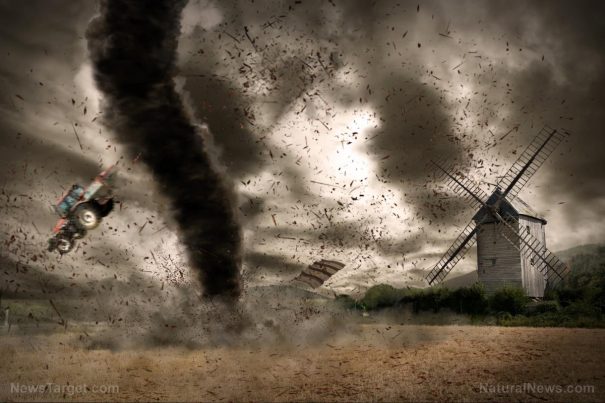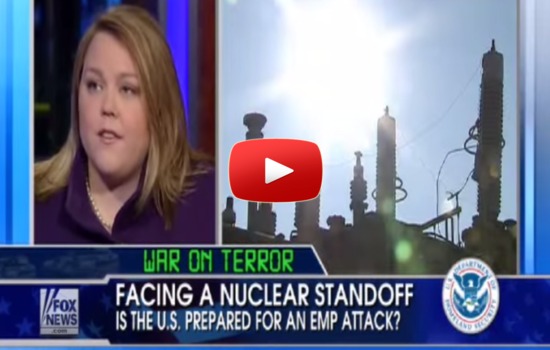On its website, the Federal Emergency Management Agency, or FEMA, says its “mission is to support our citizens and first responders to ensure that as a nation we work together to build, sustain and improve our capability to prepare for, protect against, respond to, recover from and mitigate all hazards.”
If that seems overly broad and even a little vague, that’s most likely by design. Because the fact is, it’s not possible for the federal government — or state or local governments — to adequately plan, fund and staff for major regional disasters or national emergencies.
Now, that’s not to say that smaller disasters — a tornado, localized flooding, limited social unrest — cannot be managed by state or federal agencies. In fact, state agencies, especially, handle situations like these nearly every week. America is a big country, and something is going on that local emergency and disaster response personnel must deal with all the time.
But it’s those major disasters and large-scale emergencies that state and federal agencies say they train for and are the reason why the exist that they are most unable to handle.
Take a look at a few case studies in recent years to get an indication as to how unprepared — and inept — state and federal agencies are in handling major disasters.
Remember Hurricane Katrina? The Bush administration, and President George W. Bush, in particular, were hammered over the federal government’s wholly inept and slow response, despite the fact that everybody had about a week’s notice the storm was approaching.
As reported by PBS in September 2005, shortly after Katrina made landfall and devastated much of New Orleans while damaging other Gulf Coast cities, the resulting failure to respond rapidly and effectively earned FEMA “some of the harshest criticism the agency has ever faced.”
It wasn’t as if the agency should not have been ready. Created by President Jimmy Carter in 1979 and elevated to a Cabinet-level position in 1993, then incorporated into the Department of Homeland Security a decade later, the agency has been around for a long time. Its entire purpose of existence is major disaster response. And while the agency does defer to state and local agencies for initial disaster response, FEMA is supposed to provide rapid, effective backup after receiving a request for assistance from a governor and regional FEMA director.
The agency failed miserably in the aftermath of Katrina, PBS noted:
The delayed federal response to Hurricane Katrina along the Gulf Coast has led many officials, including President Bush, who called the initial response “not acceptable,” to question FEMA’s preparedness for a natural disaster.
“The obvious fact is that Hurricane Katrina was an enormously powerful and destructive act of nature. It certainly wasn’t caused by any government,” Democratic Sen. Joseph Lieberman of Connecticut told the public broadcaster. “But government failures preparing for and responding to Hurricane Katrina allowed much more human suffering and property destruction to occur than should have. That is the sad and stunning fact.”
Then-Louisiana Gov. Kathleen Blanco made a timely request to Bush for a disaster declaration and FEMA assistance, but the internal bureaucracy of the agency slowed any real response.
“We wanted helicopters, food and water. They wanted to negotiate an organizational chart,” Blanco’s press secretary Denise Bottcher told reporters at the time. (RELATED: 5 Survival lessons we can learn from people who haven’t had power in their homes for hundreds of years.)
In 2012, when the agency was again called upon to respond to Superstorm Sandy, which devastated large swaths of New Jersey and New York, many of the same problems were still evident. As Breitbart News reported in November 2012:
Massive FEMA supply chain failures have resulted in shortages of bottled water, food, gasoline, shelter, power and clothing across New Jersey and metropolitan New York, where victims of Hurricane Sandy are angrily calling President Obama’s response no better–and in some regards worse–than President Bush’s handling of Hurricane Katrina seven years ago.
What’s the point? Only that when it comes to disasters, the only way you and your family are going to be “taken care of” is if you do it yourselves.
Too much bureaucracy on the federal level coupled with inadequate supplies, personnel and response equipment on the state level guarantees that any large-scale disaster will tax the available systems and resources tasked to respond to them. That leaves you out in the cold — or heat, depending on the time of year.
If you were on the fence about starting a prepping program of your own, hopefully this little history lesson will help you decide it’s the right thing to do.
by J.D.Heyes





